Speakers
| David De Roure | Plenary 1 |
Focused on advancing digital scholarship, David works closely with multiple disciplines including social sciences (studying social machines ), digital humanities (computational musicology), computer science (large scale distributed systems and social computing) and previously sciences and social statistics. He has extensive experience in hypertext, Web, Linked Data, and Internet of Things. Drawing on this broad interdisciplinary background he is a frequent speaker and writer on digital scholarship and the future of scholarly communications. David was closely involved in the UK e-Science programme and from 2009-2013 was the UK National Strategic Director for Digital Social Research. He is a UK representative on the European e-Infrastructure Reflection Group , a board member of the Square Kilometre Array telescope Science Data Processor consortium, a partner in the UK Software Sustainability Institute and from 2011-2013 was a Research Fellow at the Graduate School of Library and Information Science at the University of Illinois at Urbana-Champaign. Prior to moving to Oxford in 2010 he was Professor of Computer Science at University of Southampton and director of the Centre for Pervasive Computing in the Environment. He is a Fellow of the British Computer Society, a Member of the Institute of Mathematics and its Applications, a Supernumerary Fellow of Wolfson College and a member of the Wolfson College Digital Research Cluster. |
|
| Rick Robinson | Plenary 2 |
Rick is a member of the Government’s Smart Cities Forum, a Fellow of the British Computer Society and the RSA, an Open Group Distinguished Certified IT Architect and a member of the Academy of Urbanism. He is regularly invited to present to conferences held by organisations such as the World Bank, EcoBuild, United Nations, TEDx, Commonwealth Studies Conference, Royal Institute of British Architects, Royal Institute of Town Planners and the Open Data Institute. See also: http://theurbantechnologist.com/ http://twitter.com/dr_rick/ |
|
| Horst Hörtner | Plenary 3 |
|
|
| Dave Coplin | Plenary 4 |
|
|
| Chris Hargreaves | Breakout A1 |
Dr Chris Hargreaves is the founder and director of HARGS Solutions Ltd, a digital forensics consultancy based in Oxford. He currently provides digital forensics education, training, and R&D for a variety of clients. Prior to starting his own company in 2016 he was a lecturer at Cranfield University based at the Defence Academy of the UK for over 7 years. He was course director for the MSc in Forensic Computing and still teaches at Cranfield as a visiting lecturer. |
|
| Ylva Berglund Prytz | Breakout A2 |
|
|
| Clara Mancini | Breakout A3 |
|
|
| Michael Howe | Breakout A4 |
|
|
| Anne Trefethen | Breakout A5 |
|
|
| Tony Brett | Breakout A6 |
|
|
| Andrew Cormack | Breakout B1 |
|
|
| Paul Hood | Breakout B2 |
|
|
| Kristian Kocher | Breakout B2 |
|
|
| Ruth Mason | Breakout B3 |
|
|
| Matt Castle | Breakout B3 |
|
|
| Scott Cridland-Smith | Breakout B4 |
|
|
| David Ford | Breakout B5 |
After very nearly 10 years in computer security and incident response, David Ford moved in February 2015 to the School of Geography and the Environment to take up the post of IT Manager. Over the past year he has overseen a major server and storage infrastructure refresh, and has begun the task of implementing a more cohesive IT infrastructure with a stronger focus on centrally managed configuration and application deployment. He enjoys finding cost effective and tailored solutions to problems, and is keen to ensure that money is spent in an efficient way that delivers the best possible service to his users. |
|
| Simon Geller | Breakout B6 |
|
|
| Gerard Robinson | Breakout C1 |
|
|
| Ronald Haynes | Breakout C2 |
|
|
| Jonathan Ashton | Breakout C3 |
|
|
| Andrew Richards | Breakout C4 |
|
|
| Chris Dixon | Breakout C5 |
|
|
| Tom Skarbek-Wazynski | Breakout C5 |
|
|


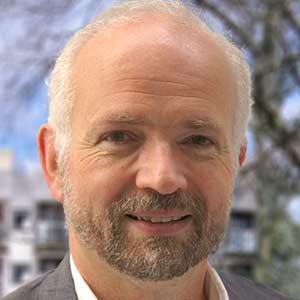 David De Roure is Professor of e-Research at University of Oxford and Director of the Oxford e-Research Centre. He has strategic responsibility for Digital Humanities at Oxford within the The Oxford Research Centre in the Humanities , collaborates in Oxford's Web Science laboratory with the Oxford Internet Institute , and is a member of the Oxford Cyber Security Centre . He is a Strategic Advisor to the UK Economic and Social Research Council in the area of new forms of data and real time analytics.
David De Roure is Professor of e-Research at University of Oxford and Director of the Oxford e-Research Centre. He has strategic responsibility for Digital Humanities at Oxford within the The Oxford Research Centre in the Humanities , collaborates in Oxford's Web Science laboratory with the Oxford Internet Institute , and is a member of the Oxford Cyber Security Centre . He is a Strategic Advisor to the UK Economic and Social Research Council in the area of new forms of data and real time analytics.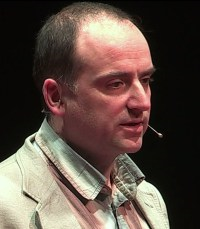 Dr Rick Robinson is IT Director for Smart Data and Technology at Amey, one of the UK’s leading public and regulated services providers. Previously, he was IBM UK’s Executive Architect for Smarter Cities. He has helped cities around the UK deliver Smart City initiatives in collaboration with urban designers, academics and policy-makers across social, economic and engineering disciplines.
Dr Rick Robinson is IT Director for Smart Data and Technology at Amey, one of the UK’s leading public and regulated services providers. Previously, he was IBM UK’s Executive Architect for Smarter Cities. He has helped cities around the UK deliver Smart City initiatives in collaboration with urban designers, academics and policy-makers across social, economic and engineering disciplines.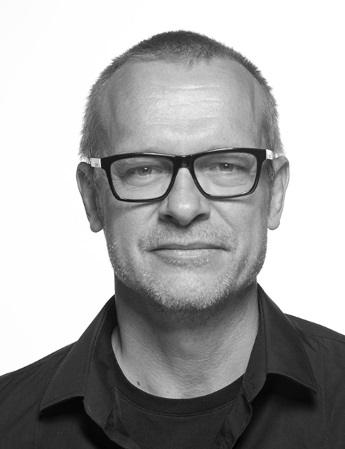 Horst Hörtner is a media artist and researcher. He is expert in design of
Human Computer Interaction and holds several patents in this field.
Hörtner is founding member of the Ars Electronica Futurelab in 1996
and since then directing this atelier/laboratory. He started to work in the
field of media art in the 1980ies and co-founded the media art group
x-space in Graz/Austria in 1990. Since 2014 the Ars Electronica
Futurelab is running a P.h.D. program together with the University of
Newcastle (Australia), where he is holding a position as conjoint
professor. Horst Hörtner is working in the nexus of art & science and
giving lectures and talks at numerous international conferences and
universities.
Horst Hörtner is a media artist and researcher. He is expert in design of
Human Computer Interaction and holds several patents in this field.
Hörtner is founding member of the Ars Electronica Futurelab in 1996
and since then directing this atelier/laboratory. He started to work in the
field of media art in the 1980ies and co-founded the media art group
x-space in Graz/Austria in 1990. Since 2014 the Ars Electronica
Futurelab is running a P.h.D. program together with the University of
Newcastle (Australia), where he is holding a position as conjoint
professor. Horst Hörtner is working in the nexus of art & science and
giving lectures and talks at numerous international conferences and
universities.
 Since joining Microsoft in 2005, Dave Coplin has worked across a wide range of industries and customers, providing strategic advice and guidance around the impact of technology on a modern society both at work and in play. As an established thought leader in the UK and having spent a considerable amount of time in both the public and private sectors providing leadership and guidance around key technology issues like Cloud Computing, Privacy, Big and Open Data, Social Media, Open Government, Advertising and the “consumerisation” of IT. Dave is currently working as the Chief Envisioning Officer for Microsoft UK, helping organisations and individuals envision the full potential that technology offers a modern, digital society.
Since joining Microsoft in 2005, Dave Coplin has worked across a wide range of industries and customers, providing strategic advice and guidance around the impact of technology on a modern society both at work and in play. As an established thought leader in the UK and having spent a considerable amount of time in both the public and private sectors providing leadership and guidance around key technology issues like Cloud Computing, Privacy, Big and Open Data, Social Media, Open Government, Advertising and the “consumerisation” of IT. Dave is currently working as the Chief Envisioning Officer for Microsoft UK, helping organisations and individuals envision the full potential that technology offers a modern, digital society.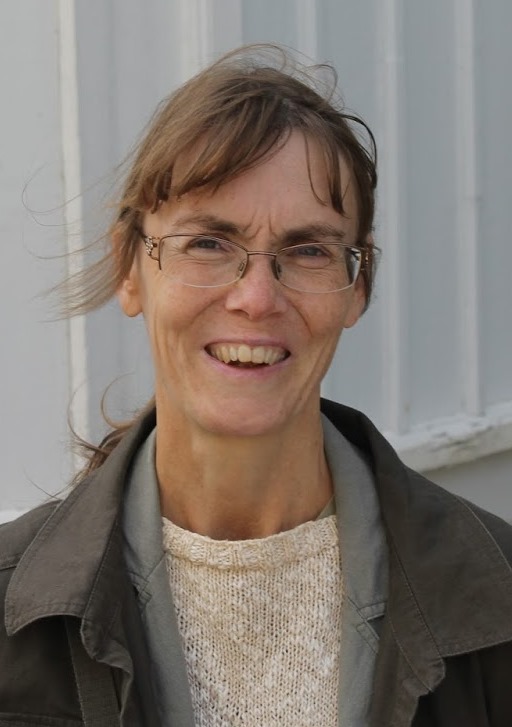 The IT Innovation Challenges uses an open innovation process to identify innovative projects which will enhance the staff or student experience at Oxford through digital means. The scheme is part of the University’s IT Capital Plan but administered by IT Services. Ylva Berglund Prytz is one of the part-time facilitators managing the day-to-day running of the scheme. She is based in Academic IT Services where she also runs the RunCoCo service, providing advice and support for those interested in crowdsourcing and community collections.
The IT Innovation Challenges uses an open innovation process to identify innovative projects which will enhance the staff or student experience at Oxford through digital means. The scheme is part of the University’s IT Capital Plan but administered by IT Services. Ylva Berglund Prytz is one of the part-time facilitators managing the day-to-day running of the scheme. She is based in Academic IT Services where she also runs the RunCoCo service, providing advice and support for those interested in crowdsourcing and community collections. 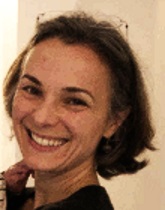 Clara Mancini is Senior Lecturer in Interaction Design and head of the Animal-Computer Interaction (ACI) Lab at The Open University. The mission of the ACI Lab is to expand the boundaries of interaction design beyond the human species. Mancini is particularly interested in the methodological challenges and innovation opportunities presented by ACI to contribute to human and animal wellbeing, social inclusion, interspecies cooperation and environmental restoration.
Clara Mancini is Senior Lecturer in Interaction Design and head of the Animal-Computer Interaction (ACI) Lab at The Open University. The mission of the ACI Lab is to expand the boundaries of interaction design beyond the human species. Mancini is particularly interested in the methodological challenges and innovation opportunities presented by ACI to contribute to human and animal wellbeing, social inclusion, interspecies cooperation and environmental restoration.
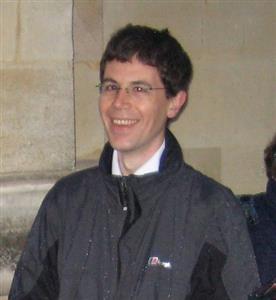 Michael is the Infrastructure and Hosting Team Leader in IT Services, responsible for the team running some of the core infrastructure (such as mailing lists and hosting for WebLearn, WebAuth, and Shibboleth, among many others). He's seen Oxford life as a student and as college ITSS before moving to IT Services, and spends some of his time explaining to people why GPG, Kerberos, SSL and similar technologies are Good Things.
Michael is the Infrastructure and Hosting Team Leader in IT Services, responsible for the team running some of the core infrastructure (such as mailing lists and hosting for WebLearn, WebAuth, and Shibboleth, among many others). He's seen Oxford life as a student and as college ITSS before moving to IT Services, and spends some of his time explaining to people why GPG, Kerberos, SSL and similar technologies are Good Things.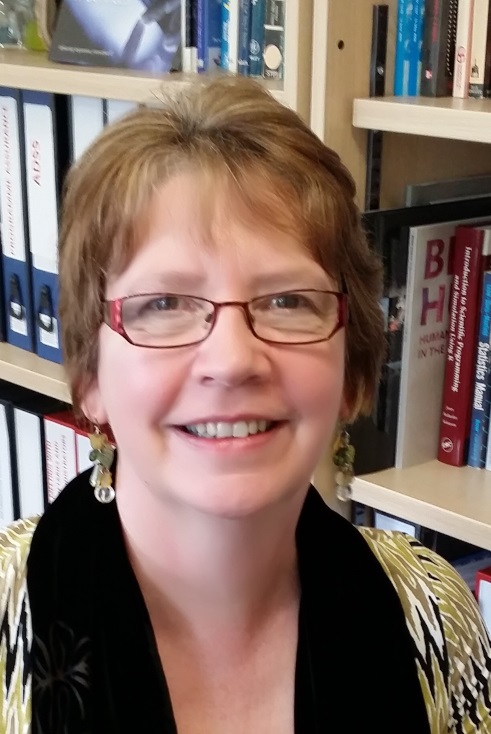 Prof. Anne E. Trefethen is the Pro-Vice-Chancellor (PVC) of the Museums, Libraries and Botanic Gardens and Chief Information Officer for the University. She is Professor of Scientific Computing and former director of the Oxford e-Research Centre.
Prof. Anne E. Trefethen is the Pro-Vice-Chancellor (PVC) of the Museums, Libraries and Botanic Gardens and Chief Information Officer for the University. She is Professor of Scientific Computing and former director of the Oxford e-Research Centre. 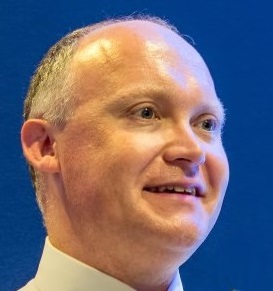 Tony started his IT career as IT Manager in Oxford University's Institute of Molecular Medicine in 1993, moving to Corpus Christi College Oxford as IT Manager in 1998 and to the University Computing Service in 2003. He was part of OxCERT, Oxford's Computer Emergency Response Team and served as Chair of Oxford's IT Support Staff Group. Tony programme-managed Oxford's ICT strategy exercise in 2006-7.
Tony was Deputy Manager of the Information and Support group in Oxford University Computing Services and was responsible for the OUCS web site as well as being head of IT Support Staff Services and Software Licensing. Since the formation of IT Services in 2012 Tony is Head of IT Support Staff Services, Central Software Licensing, and the IT Services online shop.
Tony served for many years as a member of the UCISA Distributed IT Support Staff Group and moved to the Support Services Group more recently. As a member of the BCS Tony has particular interest in IT provision and support in a distributed and federated environment and in formal methodologies such as ITILv3 and PRINCE2. He is currently undertaking several institution-requested IT service reviews and spends quite a lot of his time advising on IT recruitment as part of selection panels for Colleges and Departments.
Tony started his IT career as IT Manager in Oxford University's Institute of Molecular Medicine in 1993, moving to Corpus Christi College Oxford as IT Manager in 1998 and to the University Computing Service in 2003. He was part of OxCERT, Oxford's Computer Emergency Response Team and served as Chair of Oxford's IT Support Staff Group. Tony programme-managed Oxford's ICT strategy exercise in 2006-7.
Tony was Deputy Manager of the Information and Support group in Oxford University Computing Services and was responsible for the OUCS web site as well as being head of IT Support Staff Services and Software Licensing. Since the formation of IT Services in 2012 Tony is Head of IT Support Staff Services, Central Software Licensing, and the IT Services online shop.
Tony served for many years as a member of the UCISA Distributed IT Support Staff Group and moved to the Support Services Group more recently. As a member of the BCS Tony has particular interest in IT provision and support in a distributed and federated environment and in formal methodologies such as ITILv3 and PRINCE2. He is currently undertaking several institution-requested IT service reviews and spends quite a lot of his time advising on IT recruitment as part of selection panels for Colleges and Departments. 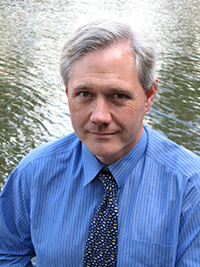 Andrew Cormack joined Janet in 1999 as Head of JANET-CERT. He is now Chief Regulatory Adviser, Jisc Technologies, informing the company and its members about regulatory and policy issues relating to the use of networked services. Having recently completed a Masters in Computer and Communications Law, he is looking forward to having his spare time back.
Andrew Cormack joined Janet in 1999 as Head of JANET-CERT. He is now Chief Regulatory Adviser, Jisc Technologies, informing the company and its members about regulatory and policy issues relating to the use of networked services. Having recently completed a Masters in Computer and Communications Law, he is looking forward to having his spare time back.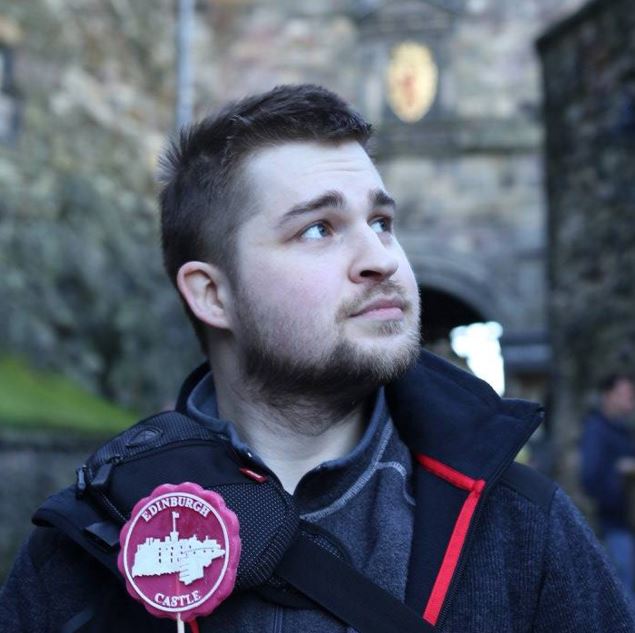 Paul is currently Security Operations Lead for OxCERT, the operational security element of the Information Security Team. OxCERT's mandate is to pro-actively defend the backbone infrastructure and the organisation's information estate. Paul joined OxCERT just over two years ago from an IT consulting background, and now focuses on development of new security technologies.
Paul is currently Security Operations Lead for OxCERT, the operational security element of the Information Security Team. OxCERT's mandate is to pro-actively defend the backbone infrastructure and the organisation's information estate. Paul joined OxCERT just over two years ago from an IT consulting background, and now focuses on development of new security technologies.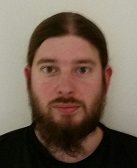 Kristian is security systems administrator for the University of Oxford network security team (OxCERT). He joined the team a year ago via the Sysdev/IAH team. Prior to that he was a system administrator at the University of Lille1 in the north of France. He is currently heavily involved in the development of the new network monitoring system and the rolling out of advanced security infrastructure.
Kristian is security systems administrator for the University of Oxford network security team (OxCERT). He joined the team a year ago via the Sysdev/IAH team. Prior to that he was a system administrator at the University of Lille1 in the north of France. He is currently heavily involved in the development of the new network monitoring system and the rolling out of advanced security infrastructure.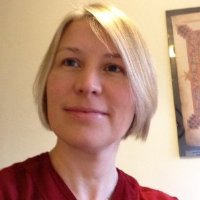 (Web Platform Team Leader)
Ruth has been successfully running teams delivering websites to the University for a number of years on a variety of content management systems.
(Web Platform Team Leader)
Ruth has been successfully running teams delivering websites to the University for a number of years on a variety of content management systems. 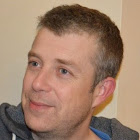 (Head of Application Development in Software Solutions) Matthew has been leading agile development teams delivering software in a number of verticals including e-commerce, financial services, and now higher education for a number of years.
(Head of Application Development in Software Solutions) Matthew has been leading agile development teams delivering software in a number of verticals including e-commerce, financial services, and now higher education for a number of years. Scott Cridland-Smith is Project Manager on the Student Systems Programme working mainly on the SITS:Vision for Colleges and Financial Support and Funding projects. He will be joined in his talk by Ben Bridle, IT Manager for Lady Margaret Hall and St Hugh’s College; and Adrian Cuthbertson, Identity and Access management team.
Scott Cridland-Smith is Project Manager on the Student Systems Programme working mainly on the SITS:Vision for Colleges and Financial Support and Funding projects. He will be joined in his talk by Ben Bridle, IT Manager for Lady Margaret Hall and St Hugh’s College; and Adrian Cuthbertson, Identity and Access management team. Simon was one of the students on the UK’s first ever Communications Studies course. However, what he hadn’t twigged was that the ICT revolution wouldn’t actually happen for 20 years so following graduation Simon worked for a Tour Operator and noted the gradual change from paperbased systems into mini computers and eventually desktop PC’s. In 1996 he started work at University of Sheffield on their new Oracle systems and has subsequently risen to Senior Project Manager. When not playing with computers Simon enjoys Cycling, Real Ale and Steam Trains so is well suited for working in an IT department.
Simon was one of the students on the UK’s first ever Communications Studies course. However, what he hadn’t twigged was that the ICT revolution wouldn’t actually happen for 20 years so following graduation Simon worked for a Tour Operator and noted the gradual change from paperbased systems into mini computers and eventually desktop PC’s. In 1996 he started work at University of Sheffield on their new Oracle systems and has subsequently risen to Senior Project Manager. When not playing with computers Simon enjoys Cycling, Real Ale and Steam Trains so is well suited for working in an IT department.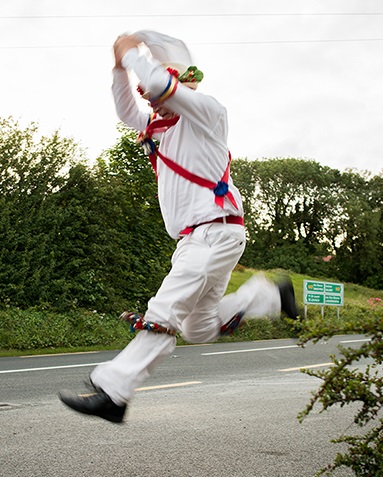 Gerard has been dancing the Morris since the mid-1970s when he first cycled 15 miles to see what happened at sunrise on May 1st at a remote earthworks in Surrey. He has been involved with Oxford University Morris Men (OUMM) since 1990 and has travelled with them as far as Japan giving performances. He is the Senior Member for OUMM which recently became an official student society.
Gerard has been dancing the Morris since the mid-1970s when he first cycled 15 miles to see what happened at sunrise on May 1st at a remote earthworks in Surrey. He has been involved with Oxford University Morris Men (OUMM) since 1990 and has travelled with them as far as Japan giving performances. He is the Senior Member for OUMM which recently became an official student society.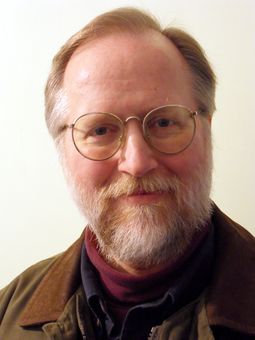 Ronald has been part of academic ICT in the US and UK, including as University of Bristol's first Webmaster, later Computer Manager for Selwyn College Cambridge, Deputy IT Manager for Cambridge's Cavendish Laboratory, and then moving to Cambridge's University Information Services (via the former Computing Service). Having helped found Cambridge's College IT Management Group (CITMG) and the Departmental IT Group (DITG), he remains active in supporting both groups' goals of mutual support and shared solutions. As part of an Institutional Strategy team - involving liaison, consultancy, professional and community development support - he has a particular focus on collaborative systems as a part of new technologies for unifying communications, including via web conferencing and related technologies. He is a member of BCS, ACM, Computer Society, IEEE.
Ronald has been part of academic ICT in the US and UK, including as University of Bristol's first Webmaster, later Computer Manager for Selwyn College Cambridge, Deputy IT Manager for Cambridge's Cavendish Laboratory, and then moving to Cambridge's University Information Services (via the former Computing Service). Having helped found Cambridge's College IT Management Group (CITMG) and the Departmental IT Group (DITG), he remains active in supporting both groups' goals of mutual support and shared solutions. As part of an Institutional Strategy team - involving liaison, consultancy, professional and community development support - he has a particular focus on collaborative systems as a part of new technologies for unifying communications, including via web conferencing and related technologies. He is a member of BCS, ACM, Computer Society, IEEE.  Jonathan leads the Governance Risk and Compliance (GRC) team within the University’s Information Security Team. Having previously worked for OxCERT responding to incidents, he is now responsible for trying to prevent them and leads the development and delivery of the governance, risk management and compliance elements of the information security strategy.
Jonathan leads the Governance Risk and Compliance (GRC) team within the University’s Information Security Team. Having previously worked for OxCERT responding to incidents, he is now responsible for trying to prevent them and leads the development and delivery of the governance, risk management and compliance elements of the information security strategy.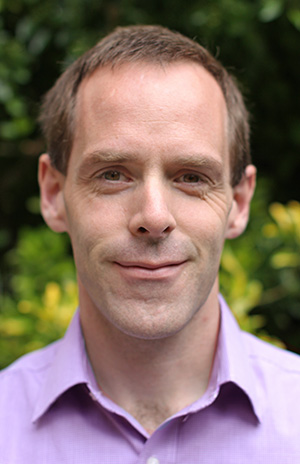 Dr Andrew Richards is Head of Advanced Research Computing, which is part of Academic IT in IT Services.
Dr Andrew Richards is Head of Advanced Research Computing, which is part of Academic IT in IT Services.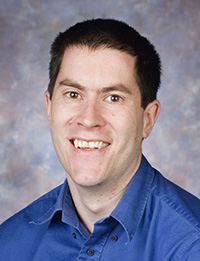 Chris Dixon is Head of Service Delivery and Operations at Lancaster University and heads up the Innovation Hub which consists of two full time staff plus student developers, as well as owning the iLancaster mobile phone application platform. Chris was formally a developer, nuclear power plant worker and enjoys flying light aircraft.
Chris Dixon is Head of Service Delivery and Operations at Lancaster University and heads up the Innovation Hub which consists of two full time staff plus student developers, as well as owning the iLancaster mobile phone application platform. Chris was formally a developer, nuclear power plant worker and enjoys flying light aircraft. 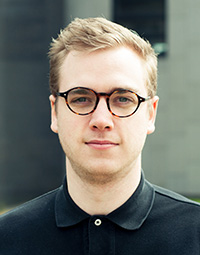 Tom is the (Lancaster University) Innovation Hub’s developer, who is responsible for delivering solutions to Innovation Hub lead projects. He is an experienced designer and developer having worked across a multitude of industries as well as previously founding several successful startups.
Tom is the (Lancaster University) Innovation Hub’s developer, who is responsible for delivering solutions to Innovation Hub lead projects. He is an experienced designer and developer having worked across a multitude of industries as well as previously founding several successful startups.
